Mechanical Science and Engineering
Under the theme of "Managing the Earth," we research and develop machines that work in aerospace, land, and sea.
What you can learn and research in this course?
In order to realize a sustainable society, it is necessary to break away from the conventional mass production, mass transportation, mass consumption, and mass disposal, and the realization of a recycling-oriented society is the theme for mankind. Under the theme of "Managing the Earth," the Mechanical Science Course aims to nurture researchers who will pursue cutting-edge science and technology, and advanced manufacturing engineers in the fields of development, design, and manufacturing of advanced mechanical systems required by society.
Field of Aerospace
We respond to the needs of aerospace systems and educate from the basics to a wide range of practical skills of mechanical and aerospace engineering. We mainly teach the introduction to aerospace engineering, aviation-fluid engineering, solid mechanics, mechanics of materials, system control engineering and aerospace systems engineering.
Field of Bio-robotics
We respond to the needs of biotechnology and robotics system and educate from the basics to a wide range of practical skills of mechanical engineering and biotech/robot engineering. We mainly teach the introduction to robot engineering, bioengineering, measurement engineering, precision engineering and robotics engineering.
Field of System Design
We respond to the needs of system design and educate from the basics to a wide range of practical skills of systems design. We mainly teach the introduction to automotive engineering, production and processing, combustion engineering, environment and energy, and heat transfer engineering.
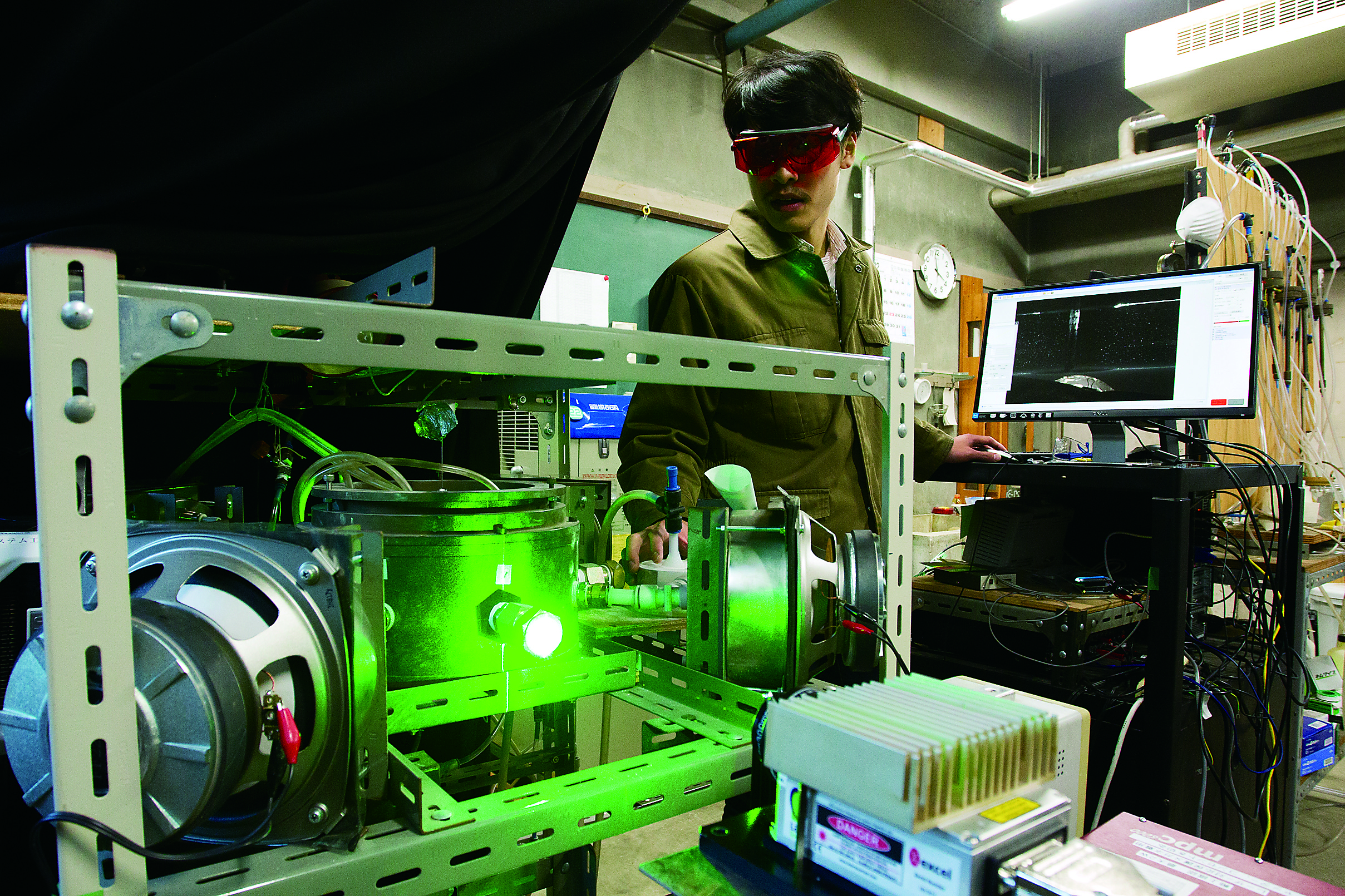
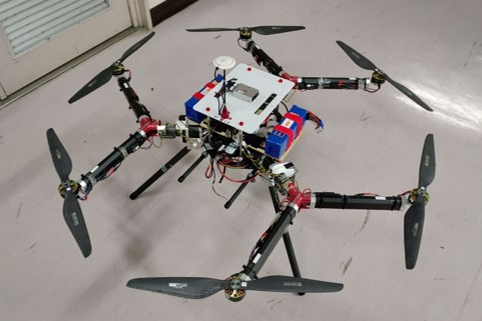
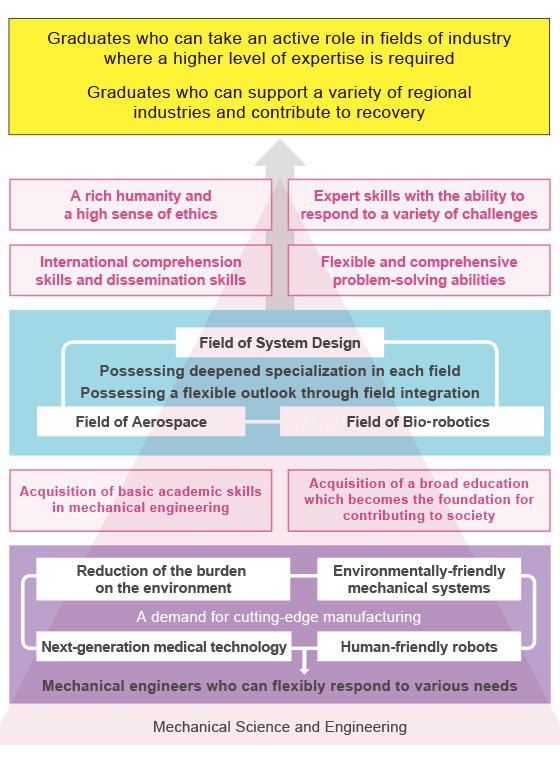
How our research can be applied to society?
Mechanical science supports cutting-edge science and technology, which continues to make remarkable progress.
In the “Aerospace” field, research is conducted on environmentally compatible aeroengines and unmanned aerial systems. In the "Bio-Robotics" field, we are researching and developing new robots that learn from living organisms and robots that support human health and life, and in the "System Design" field, we are researching and developing environmentally friendly processing technology and energy control technology.
These studies will be utilized to realize an affluent and sustainable society.
What this course looks for in students?
The Mechanical Science Course aims to realize a sustainable society by creating the next generation of science and technology in the field of advanced manufacturing, and fosters mechanical engineers who have the ability to create mechanical systems while flexibly responding to the diverse demands of society, such as reducing environmental impact and saving energy. To achieve this goal, this course is designed to provide students with the ability to create mechanical systems while flexibly responding to diverse social demands, such as reducing environmental impact and saving energy. To this end, this course seeks students with the following abilities and qualities.
- A desire to play an active role not only in the local community but also on a global scale in order to realize a sustainable society.
- An interest in mechanical science and the basic academic skills and logical thinking required to study it.
- The ability to take an interest in various issues facing humanity and to gather information to solve them.
- Willingness to actively explore and solve problems in mechanical science.
What kind of human resource will this course develop?
Students can acquire basic knowledge and ideas about mechanical engineering, which plays an important role in manufacturing, as well as skills to apply to the real world. With a focus on mechanics, mechanics of materials, fluid mechanics, and thermodynamics, the department develops education and research in the three fields of aerospace, bio-robotics, and system design, with the aim of developing technologies that require further specialization and integrated manufacturing. We aim to develop education and research in three fields: aerospace, bio-robotics, and system design, in order to develop engineers and researchers who can play an active role in industrial fields, and human resources who can support diverse regional industries and contribute to reconstruction.
What kind of career path is expected after graduation?
Besides going to graduate school, graduates who have acquired knowledge and skills in mechanical engineering are needed in every industry and every field. Consequently, a high rate of employment is expected.
- Machine manufacturing
- Aviation machinery
- Transportation machinery
- Heavy machinery
- Medical devices and daily support equipment
- Electricity and electronics
- Civil service
- Go on to graduate school, etc.
Curriculum
| First year | Second year | Third year | Fourth year | |
|---|---|---|---|---|
| Specialized Basic Courses |
●Basic Mathematics ●Calculus Ⅰ ●Calculus Ⅱ ●Linear Algebra ●Physics Ⅰ ●Physics Ⅱ ●Chemistry |
●Differential Equations ●Vector Analysis ●Fourier Analysis ●Physics Laboratory |
●Complex Analysis ●Probability and Statistics |
|
| Mechanical Science and Engineering Course Subjects |
●Workshop Practicum ●First Year Mechanics Seminar ●Basic Mechanical Drawing Ⅰ ●CAD Practicum ○Introduction to Automobile Engineering ○Introduction to Robotics ○Introduction to Aerospace Engineering |
●Basic Mechanical Drawing Ⅱ ●Mechanical Design Drawing ●Exercises in Mechanics of Materials ●Engineering Materials ●Hydraulics ●Exercises in Hydraulics ●Exercises in Mechanical Dynamics ●Thermodynamics ●Exercises in Thermodynamics ●Metal Cutting ●FORTRAN Programming Practicum ○Manufacturing Processes ○Mechanics of Materials Ⅱ ○Fluid Mechanics ○Numerical Analysis |
●Mechanical Science Laboratory ●Control Engineering ●C Programming Language Practicum ●Selected Topics in Mechanical Science Ⅰ ●English Seminar in Science and Technology ●Mechanical Science Seminar Ⅰ ○Selected Topics in Mechanical Science Ⅱ ○Heat Transfer ○Combustion Engineering ○Environment and Energy ○Biomedical Engineering ○Precision Engineering ○System Control Engineering ○Measurement Engineering ○Mechanics of Solids ○Elementary Computational Mechanics ○Aeronautical Fluid Engineering |
●Mechanical Science Seminar Ⅱ ●Graduation Research ○Tribology ○Robotics Engineering ○Aerospace System Engineering |
| Common Courses within Science |
○Circuit Theory Ⅰ ○Basic Electrical Theory ○Basic Computer Engineering ○Surveying |
●Mechanics of Materials Ⅰ ●Mechanical Dynamics ●Mechanical Design ○Analog Electronic Circuits ○Discrete Mathematics ○Logic Circuits ○Structural Mechanics Ⅰ ○Environmental Engineering |
||
| Common Courses within the Department | ●Introduction to Soft Path Science and Engineering |
●Ethics for Engineers |
||
|
○Nuclear Engineering ○Quality Control and Industrial Management Plan ○Introduction to Intellectual Property ○Selected Topics in Patent Law |
||||
| ○Internships | ||||
| ○Overseas Training in English for Science and Engineering | ||||
●Compulsory Subjects ○Elective Subjects
Interviews with Students
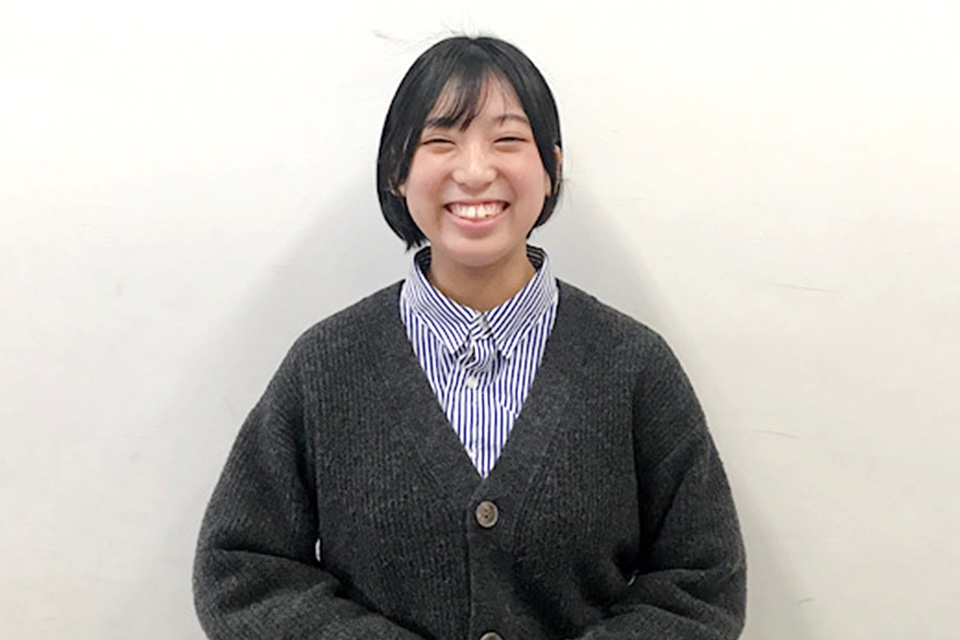
Study systems engineering, proceed to my dream field: the aviation industry.
ONO Hikari
[from Sakata Higashi High School, Yamagata Prefecture]
I am interested in airport management and aircraft maintenance. When I was a high school student, I was looking for a university in Tohoku region where I could study aeronautical engineering. My high school homeroom teacher recommended the Faculty of Science and Engineering at Iwate University and I decided to come to here. I plan to work in the aviation industry in the future.
I am currently a member of Hanahara-Yamada Laboratory, where we study optimization techniques based on systems engineering. Although I have not yet decided on my own research theme, I am interested in research on human activities such as eye gaze and body movements. I am currently studying computer programming in preparation for my graduation project. Whenever I feel difficulty, senior members of the laboratory always help me and I try to think of ways to resolve the problem. Sometimes I feel frustrating facing things that I cannot handle immediately, but I see that a challenge to give me opportunity for growth and enjoy learning new things. I would be happy if my future research makes someone's life well, even if only a little.
The following teachers are waiting for you in this course
-
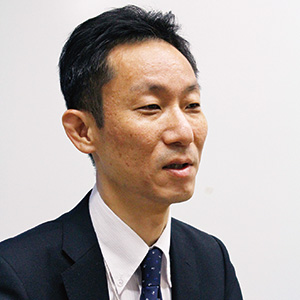
UENO Kazuyuki
-
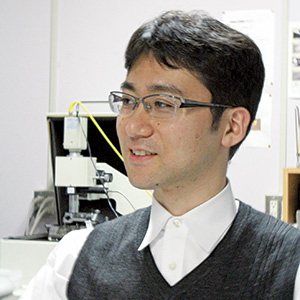
UCHIDATE Michimasa
-
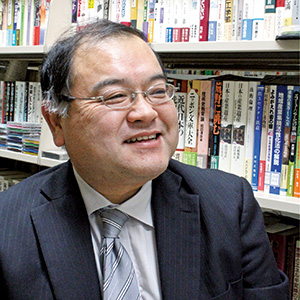
ONODERA Hideki
-
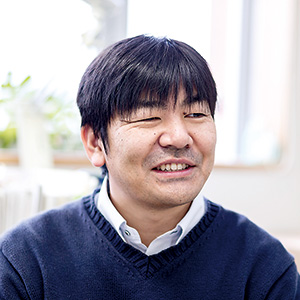
SASAKI Makoto
-
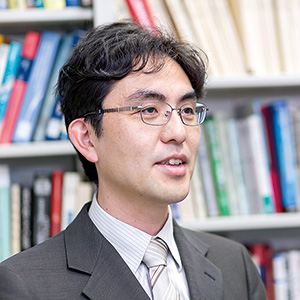
SATOH Atsushi
-
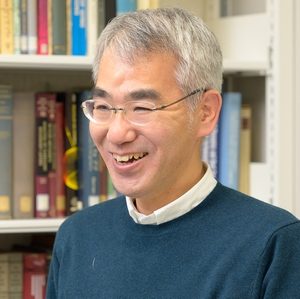
SHIBATA Takanori
-
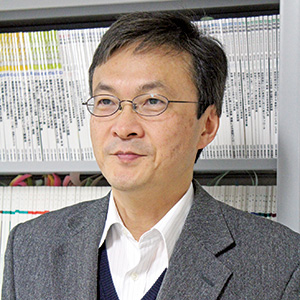
SHIMIZU Tomoharu
-
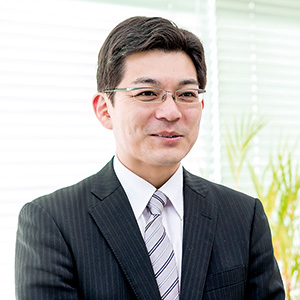
SUENAGA Yosuke
-
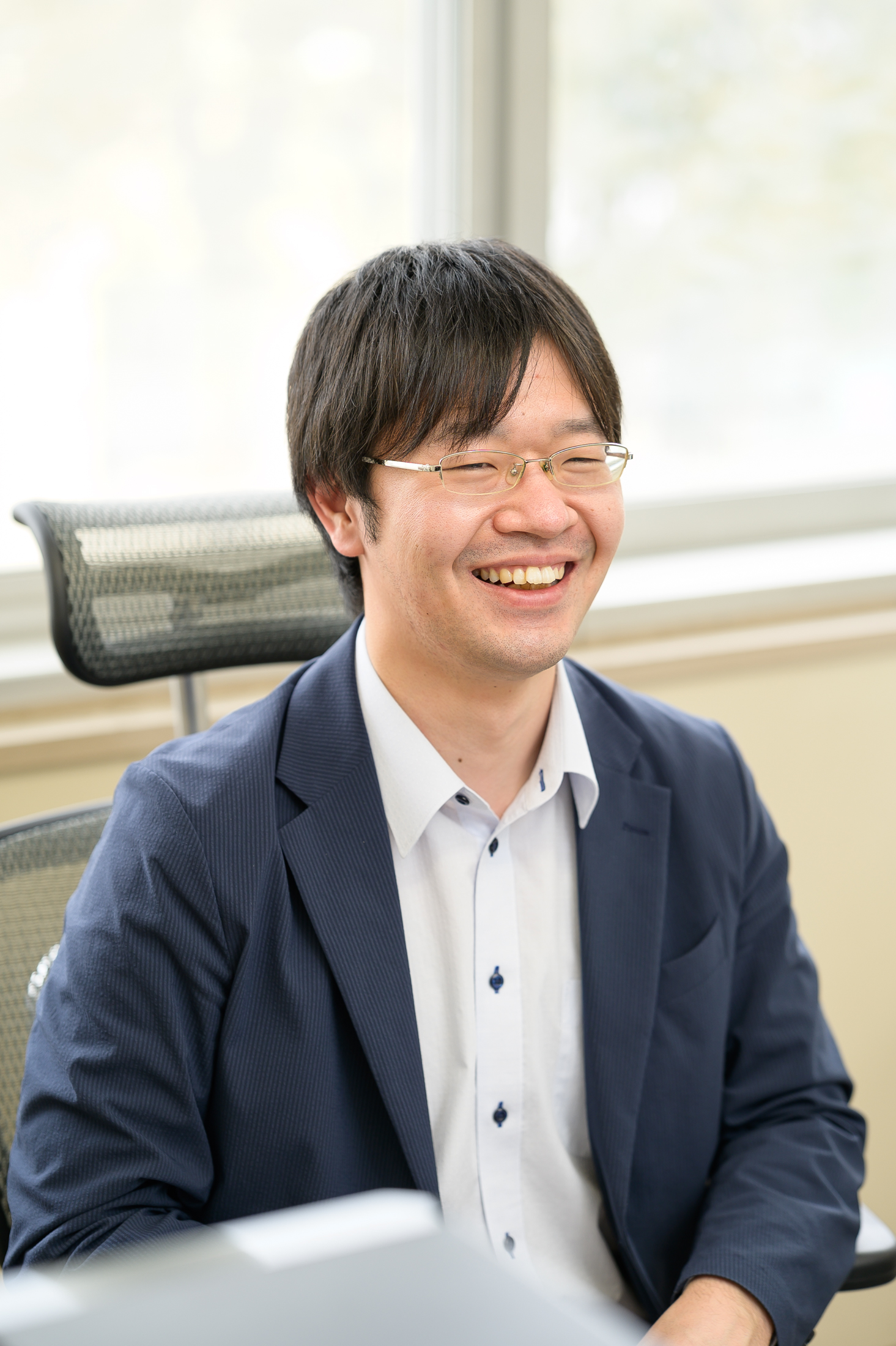
TAKEDA Yuki
-
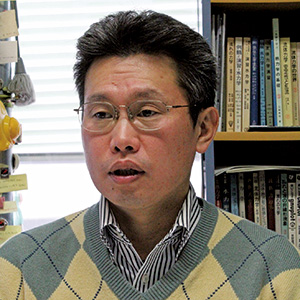
TANIGUCHI Hideo
-
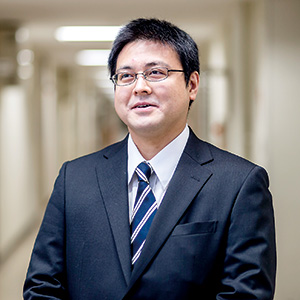
NISHIKAWA Naohiro
-
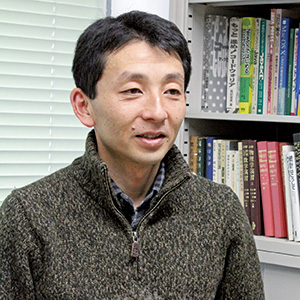
NISHIMURA Fumihito
-
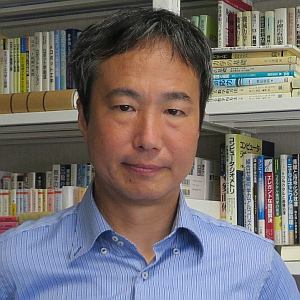
HANAHARA Kazuyuki
-
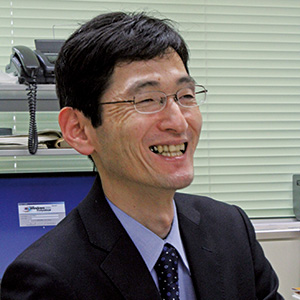
MIZUNO Masahiro
-
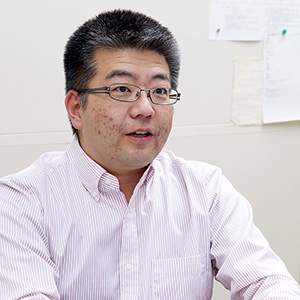
MIYOSHI Tasuku
-
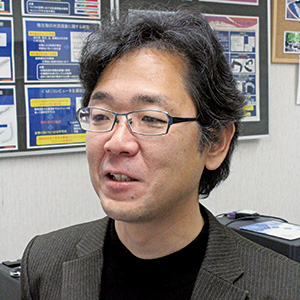
YANAOKA Hideki
-
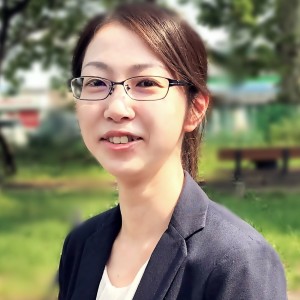
YAMADA Kaori
-
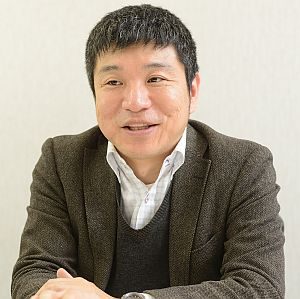
YAMADA Kazutoyo
-
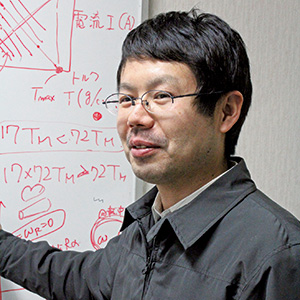
YUKAWA Toshihiro
-
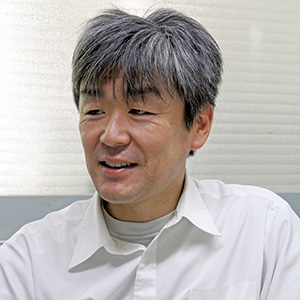
YOSHINO Yasuhiro
-
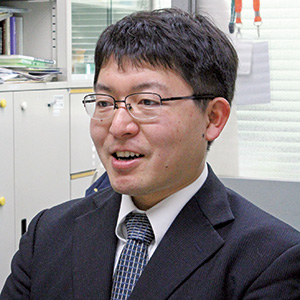
YOSHIHARA Nobuhito
-
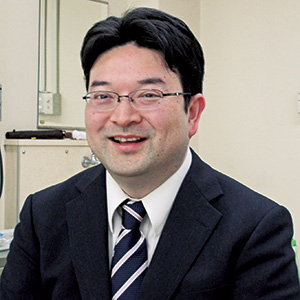
WAKI Hiroyuki


